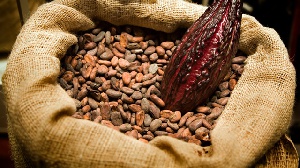Claims by the Ghana Cocoa Board (COCOBOD) that fertilisers supplied by Agricult Ghana Limited were adulterated have been found to be false.
Agricult Ghana, together with its Managing Director Seidu Agongo and a former Chief Executive of COCOBOD, Dr. Stephen Opuni, have been accused among others of causing financial loss to the state, defrauding the Ghana Cocoa Board, receiving funds that are proceeds of a crime and supplying adulterated fertiliser.
According to one political and social analyst Ibrahim Yahaya, available information, however, reveals the claims are nothing but an attempt to falsely accuse the company.
Officials of COCOBOD who are shocked at the turn of events say every agro-chemical supplied to the company first undergoes rigorous scientific tests at the Cocoa Research Institute of Ghana (CRIG), a subsidiary of COCOBOD.
CRIG, which has been in operations for several decades, has the best scientists when it comes to cocoa, fertilizer and soil science in the West African sub-region and is the only body responsible for testing fertilizer and agrochemicals in Ghana.
According to officials, COCOBOD requested, as it does with other supplies, that the Agicult’s Lithovit Fertiliser be tested by CRIG which certified the product, issued a certificate before the company was given the approval to supply the product.
Contrary to news reports, CRIG in 2014 tested and recommended ‘Agricult Lithovit’ for use and issued the company with its first certificate following which Agricult was awarded a contract for 700,000 litres of fertiliser, which it supplied and was paid for.
In 2015, Agricult was again awarded a contract for one million litres after another round of CRIG testing and certification, which it again supplied in full and was paid for.
Staff of the COCOBOD’s Cocoa Health Extension Division (CHED) say they even conducted a research in 2015 to find out the impact of the Lithovit fertiliser on cocoa yields and the results were positive.
What happened with the 2016 order and which is the subject of a legal matter between COCOBOD and the supplier, is what some workers say could have led to the attempt to accuse the company and the former CEO.
The new Board of COCOBOD and management following their taking over of operations, decided to terminate unilaterally a contract for one million litres, with the products ready for delivery and handing over.
The termination of the contract, we are told, is a subject of a legal contest currently, with COCOBOD now claiming without any evidence that the Lithovit supplied was poisonous and not fertilizer.
Samples of the Lithovit fertiliser taken from the COCOBOD warehouse and sent for testing at the Ghana Standards Authority in July 2017 returned a positive result, confirming that it was indeed fertilizer with the right components and was not poison.
Officials of COCOBOD with knowledge of the fertiliser services of the company say they cannot understand how goods ordered and paid for, and another set ordered but rejected by COCOBOD will be the fault of the supplier.
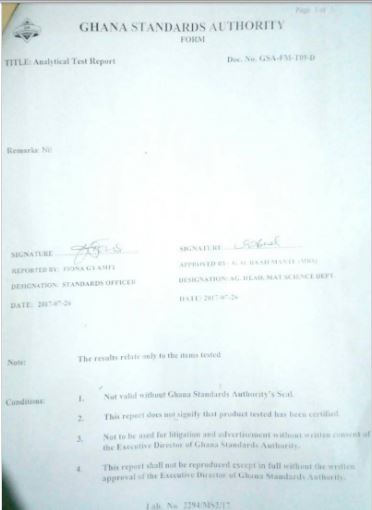

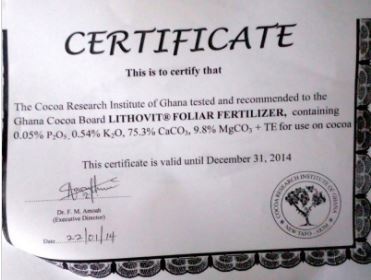
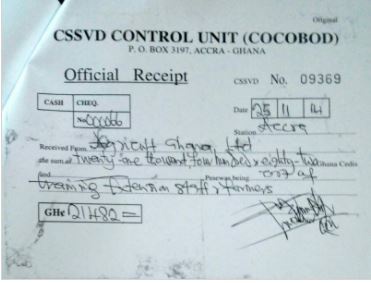
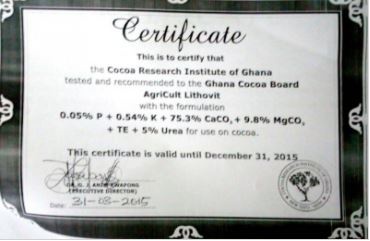
General News of Saturday, 17 March 2018
Source: Ibrahim Yahaya





